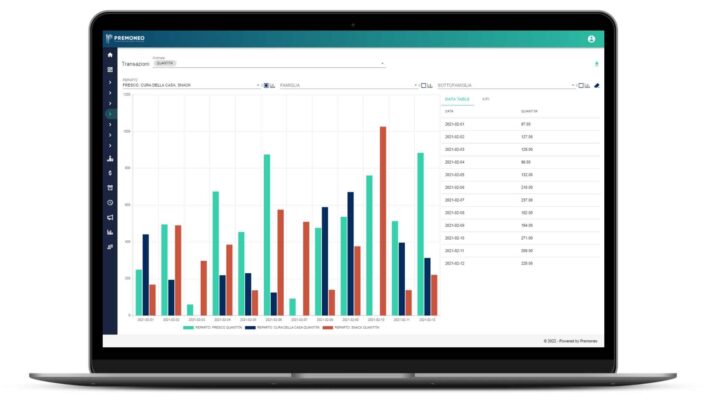Business Intelligence, also known as BI, refers to the capabilities that enable organisations to make better decisions, take data-driven actions and streamline business processes.
The main purpose of Business Intelligence is to collect up-to-date data from the organisation, present the data in a way that can be quickly understood (such as tables and graphs) and provide the data promptly to different levels of the company.
Generally speaking, a BI solution is a combination of strategy and technology for collecting, analysing and interpreting data from internal and external sources, with the result of providing information and analytics on the past, present and future state, in this case, of the business being examined.
Business Intelligence and Business Analytics
Often the concepts of Business Intelligence and Business Analytics are used synonymously, but Business Analytics refers more specifically to the process of examining data for trends and insights. When used together, the terms BI and Business Analytics have a broader meaning and include every aspect of data collection, analysis and interpretation.
Today’s solutions offer applications to support companies in obtaining actionable intelligence at every stage of the process. Good business intelligence is a prerequisite for all other analyses, for extracting insights and generating action suggestions, as is the case with the AI in Premoneo’s software.

Data and the ability to derive insights from it are today’s most valuable resources for sustaining and growing companies, and this is confirmed by the data on companies’ investments in this type of software. Having data in the company that is well organised, correct and ready to be analysed by algorithms and/or data scientists ready to unearth important information for the business is the objective of every entrepreneur able to conceive the strategic, as well as the operational, value.
Business Intelligence, the advantages of digitising information
Business realities, particularly in Italy, still have a widespread problem of digitalisation. Often companies superficially approach digitalisation, without asking themselves the necessary questions about how best to organise information, arriving at a later date to redo the work carried out.
Information needs to be organised and constantly updated with processes that are as automated as possible to improve company performance in two directions:
- Speed
- Reduction of errors
To structure activities of this type, ad-hoc flows can be created, if the complexity of the IT ecosystem and the company’s needs require it, or Business Intelligence software tools can be used, designed with this objective in mind. Information is stored and made available in the most heterogeneous formats:
- Files (of various formats)
- Webservice (Rest, SOAP, …)
- Stream
- SQL database
- NoSQL database
The same information can be represented in very different ways:
- Dates in Italian, American, …
- Times with seconds or only up to minutes
- Numbers with decimal separator, comma or point
- Different identifiers (IDs) for the same object, in the same company
Business Intelligence, the added value
Standardising information formats and company master data is a fundamental process (only uniform information can correspond to correct reports), but especially complex when different data sources are involved.
A BI helps to do just that, by taking the ‘raw’ streams and standardising them so that they can be fed into other software, or preparing the information in a format that can be used by an algorithm or report that updates itself automatically.
Once a BI system has been set up, it can be extended step by step, improved and tested, all with one major advantage: the centralisation of information management.
Another advantage is that by using such a tool, the bugs will certainly be fewer than with a solution developed in-house and without any particular expertise, to deal with an emergency.
Knowing what is involved in maintaining software and preserving IT know-how in a company, is no small thing.


